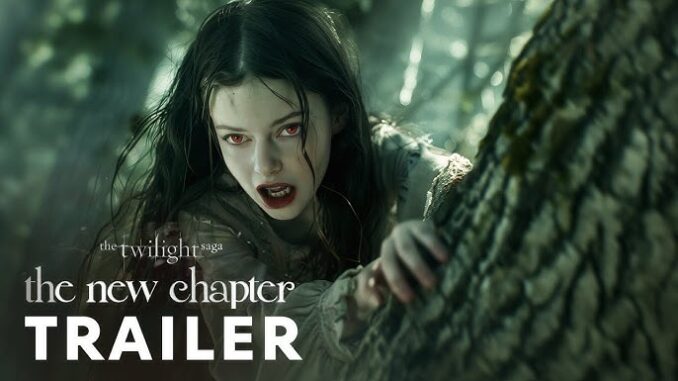
The Echo in the Forks Forest: On Outlines and Unwritten Worlds
The internet, a crucible of fleeting attention and instant gratification, rarely pauses for a whisper. Yet, when Stephenie Meyer confirmed the outlining of two new Twilight novels, a distinct, almost audible hum vibrated through its digital veins. It wasn’t the roar of a blockbuster announcement, nor the sharp crack of breaking news. It was a more subtle sound, like the collective intake of breath from millions, some in delighted anticipation, others in bewildered resignation, and many more still simply transported back to a time when vampires sparkled and teenage angst felt like the fate of the universe. This isn’t merely a publishing update; it’s a cultural echo, a testament to the enduring, complex power of a fictional world that, even unwritten, still casts a long, glittering shadow.
For many, the news landed like a ghost from Christmas past, a forgotten bookmark falling from a well-loved, perhaps slightly dog-eared, paperback. The mention of “Twilight” instantly conjures a sensory tapestry: the damp, green-filtered light of Forks, the faint scent of pine needles and damp earth, the intense, almost suffocating gravity of first love. It transports an entire generation back to feverish debates in school cafeterias – Team Edward versus Team Jacob, a divide as potent then as any political schism. The news rekindles the memory of late-night reading under the covers, of movie marathon weekends, of a world that, for all its occasional narrative stumbles and divisive critical reception, offered an undeniable, almost primal escape. The outlined novels, existing only as potential, become a doorway back to this specific strain of nostalgia, promising a return to a simpler, more intensely felt adolescence, even for those long past it.
Yet, the hum isn’t uniform. For every cheer, there’s a groan; for every nostalgic sigh, an exasperated eye-roll. Twilight was never just a book series; it was a phenomenon that carved a deep, often polarized, groove in popular culture. Its return, even in outline form, immediately reignites these old fires. Critics, who once dissected its prose and thematic implications with surgical precision, will inevitably sharpen their scalpels. Fans who moved on, perhaps even outgrew, the intense romanticism, might feel a twinge of “oh, not again.” The announcement itself, before a single word is penned, becomes a flashpoint, illustrating the enduring cultural conversation that Meyer’s work continues to provoke. It’s a collective weighing of the scales: will these new stories enrich the universe, or will they simply dilute its existing, albeit flawed, magic?
The most intriguing aspect, however, lies in that crucial qualifier: “outlined but not yet written.” This isn’t a book release; it’s a promise, a whisper of future storms. It allows for an exquisite period of pure, unadulterated anticipation. The stories exist only in the ethereal realm of Meyer’s imagination and in the collective projections of her audience. Fans can now speculate endlessly: Whose perspective will it be? What corner of the sprawling supernatural world will be explored? Will it delve into the deeper lore of the Volturi, or explore the futures of Renesmee and Jacob? This state of limbo is potent, perhaps even more so than the eventual release of the books. It transforms the readership into co-creators, filling the blank spaces of the outlines with their own desires, their own fan theories, their own hopes and fears for the beloved characters. It’s a testament to the power of suggestion, the tantalizing allure of the unknown.
Stephenie Meyer, in confirming these outlines, isn’t just announcing future projects; she’s subtly acknowledging the enduring grip her fictional world holds. After the massive success and the subsequent quiet years, interspersed with ventures into other genres (The Host, The Chemist), her return to the Forks universe feels less like a contractual obligation and more like a deliberate choice. It implies that the stories themselves still call to her, that there are threads left to weave, characters whose fates still demand exploration. This personal connection, even if indirect, adds another layer to the announcement, transforming it from a mere business transaction into a creative re-engagement with a world that defined a generation.
The echo of Twilight in the digital forest of our modern consciousness is a complex symphony of nostalgia, critique, and boundless anticipation. The outlined novels, though currently intangible, stand as potent symbols of unfinished narratives and the enduring power of a story to transcend its pages and embed itself in the cultural psyche. They remind us that sometimes, the greatest magic lies not in the words already written, but in the thrilling potential of the ones that are yet to be. The journey has begun, even if the destination remains, for now, a sparkling, distant mirage.
